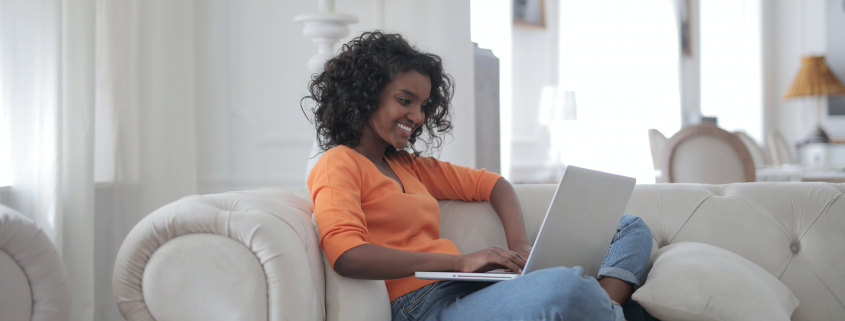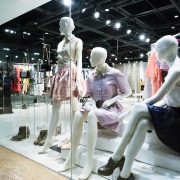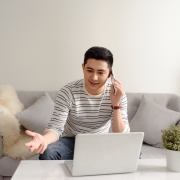The Future Of Fashion Caters To The Home-Bound Customer
‘Forget power suits, haute couture and evening gowns. This season’s hottest trends are oversized t-shirts, pajamas and loungewear.’ BARE shares an article by Blake Morgan for Forbes with home-bound customer fashion trends.
‘With most consumers working from home and not going out to concerts, clubs or events, fashion has also had to pivot. And catering to home-bound customers is likely to last for a while.
What’s Happening Right Now: The Changing Shopping Trends
- In the first few months of the COVID-19 pandemic, sales of pants dropped 14% across all retailers, while sales of tops increased. The reason is simple: with more people working from home and communicating via video, workers only need to look professional from the waist up. Unlike when working in the office, wearing sweat pants with a blouse is completely acceptable at home.
- Others changes to shopping trends include a 143% increase in pajama sales in March and a 13% decline in the sale of bras. Clearly, people are staying home and staying comfortable.
- To match changing shopping trends, retailers have been adjusting their marketing and inventory to cater to at-home consumers. Rent the Runway added sections for “Night In” and “Perfect Zoom Tops,” and Nordstrom emailed customers about “Cute shoes to wear at home or around the block.”
In the future of fashion, brands will find innovative ways to make customers feel stylish, confident and comfortable, no matter if they are strutting down the runway or working from the couch.
Fashionable At Home
A growing number of innovative fashion brands are bridging the gap between traditional office attire and at-home loungewear. One such brand is Grey State, which was created by Saima Chowdhury to provide relaxed luxury clothing that gives comfort, style and a sense of calm confidence to a woman’s busy schedule. Pieces are made of eco-friendly cotton and are presentable while still being stylish and comfortable.
Saima is her own customer and understands the need for women to feel confident and comfortable, especially when at home.
“We’ve all had a major shift in lifestyle with working from home, which comes with its own set of variables,” Saima says. “In terms of fashion, her choices have shifted to more relaxed and comfortable loungewear. While most businesses are still remote, she still needs to look presentable for Zoom calls and team meetings. This is where we come into play—by making soft, touchable, eco-friendly clothing with a neutral color palette, we allow the customer infinite WFH-friendly options.”
Grey State started years before COVID-19 but taps into current trends. As many women find themselves with closets full of unused professional clothes, they want items that make it easy to feel pulled together while staying home.
All-Day Sleepwear
Pajamas have seen a resurgence during the pandemic, but fashionable brands and customers are taking them to the next level. Ashley Merrill founded Lunya in 2014 to reinvent sleepwear for the modern woman. Lunya offers simple, stylish pajama pieces like leggings, oversized tees and joggers in neutral colors that offer women a step up from sleeping in old sweatpants and college t-shirts. The goal is to create pieces that women feel good about relaxing in.
The brand has seen incredible growth over the last six months as customers move from wearing Lunya for an at-home movie night to putting it on for video calls and at-home work. Although they are pajamas, they don’t seem out of place in a work-from-home professional setting. The pieces transition from sleepwear to all-day loungewear and even include technology-infused natural fibers to keep customers cool and comfortable.
Many companies are moving towards a similar model as Lunya and creating light, easy clothing that can be combined for a number of at-home situations.
Dressed Up With Nowhere To Go
Brands that are established in the athleisure or loungewear segment perhaps have an easier time adapting to at-home customers. But with events, parties and nights out with friends being cancelled, even luxury retailers are switching to cater to customers at home. Batsheva Hay, a designer known for making luxury prairie and party dresses, was hit hard by the pandemic with huge amounts of cancelled orders. To appeal to the future of fashion, her brand is moving to housedresses. The new housedresses are one-size-fits-all with an adjustable sash tie and come in comfortable prints and light cottons—a far cry from Batsheva’s metallic party dresses.
It’s a move that appeals to customers who are used to dressing up every day but are now at home and likely don’t want to wear sweatpants all day. By combining vintage fashion with current comfort, Batsheva helps customers dress the part, even if they are spending much more time at home.
The COVID-19 pandemic has dramatically impacted the future of fashion. With consumers spending more time at home for the foreseeable future and caring about comfort and ease, fashion brands are adapting to create clothing and marketing campaigns that keep customers stylish in their own homes.’
Read the original article in full here.
For more information on how we can help you set up a mystery shopping program, send us a note here. We, at BARE, believe in the ‘why’ behind the reasons, and we will provide actionable insights to help you provide the best experience for your customers.
Disclaimer of endorsement: Any reference obtained from this article to a specific business, product, process, or service does not constitute or imply an endorsement by BARE International of the business, product, process, or service, or its producer or provider.











